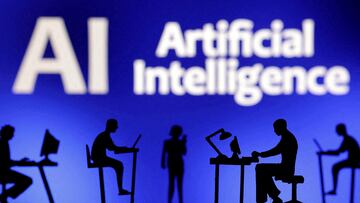The economist who predicted the crash of 2008 explains how AI will effect the economy
Artificial intelligence is set to have a big effect on the economy, according to Goldman Sachs’ chief economist Jan Hatzius.

Artificial intelligence has become a constant topic of debate; how much will AI help or harm the economy? According to Jan Hatzius, chief economist at Goldman Sachs who predicted the 2008 economic crisis, Artificial Intelligence will actually have a positive impact on the country’s economy.
Through an interview for CNN, Hatzius was optimistic about the impact of AI on the economy. Given that new tools make workers are more efficient, projections point to inevitable economic growth, since the main objective of new developments is to enhance the proactivity of human beings.
“I see it as a productivity enhancer,” Hatzius said. “A large number of workers in the economy will become more productive. That is very, very likely.”
Who is Jon Hatzius?
Jan Hatzius is the chief economist of the investment bank Goldman Sachs. He's a prominent figure in the field of economics, known for his accurate economic forecasts.
The performance is expected to be so significant that it could even help improve the country's gross domestic product (GDP).
“This is the story of economic growth and innovation for hundreds of years: you have an innovation that is basically labor saving and that reduces employment in some areas, but then boosts it in others,” he noted. “How that balance is going to work out in the short term, it’s difficult to say. But where I’m much more confident is that it can significantly add to growth over time.”
Just in recent months, government agencies such as the Treasury Department and the Internal Revenue Service have begun to use AI technologies to detect financial crimes and tax evaders, respectively. The benefits of AI range from research and learning to the creation of new ideas, which translates into a highly efficient resource for economists and workers in almost any field.
Not everything will be positive
Related stories
Although there are jobs that can benefit from the new tools, there will be other sectors where AI will be an enemy and, inevitably “destroy some jobs.” He expects that up to 300 million full-time jobs worldwide can be automated through AI.
“It will destroy jobs in some areas. There will be sectors of the labor market in which tasks can be substituted. And to some extent, that will result in reduced employment there. But you will also find other ways to innovate and create more jobs elsewhere,” Hatzius explained.

